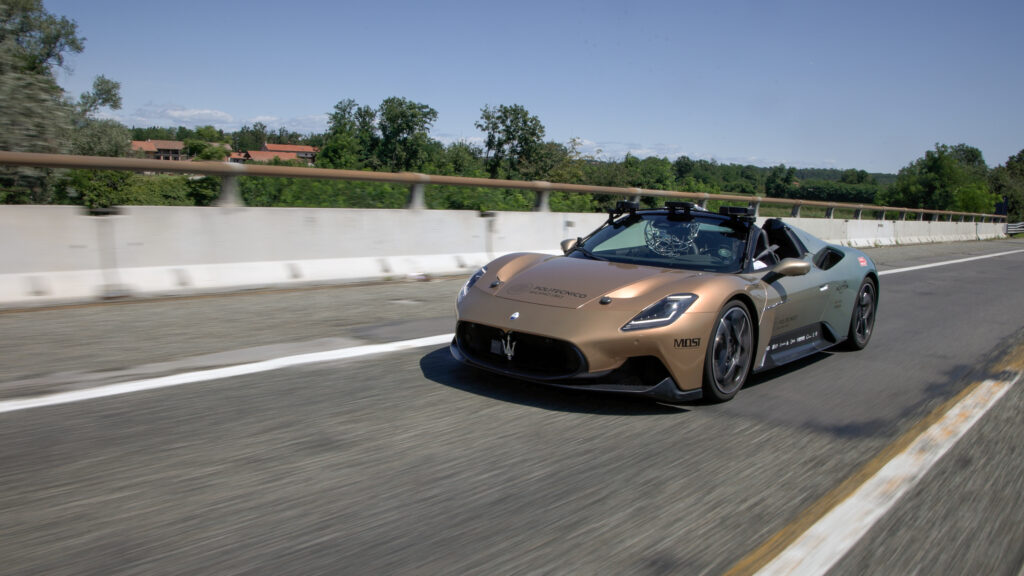The pilot phase for self-driving vehicles continues on the Autostrade per l’Italia network, this time on a section open to traffic.
As the first concessionaire in Italy to allow this type of vehicle to circulate, in accordance with Ministerial Decree 70 ‘smart roads’, ASPI is working alongside the Politecnico di Milano, a university that recently obtained authorisation for this type of test, supported by the Technical Support Observatory for Smart Roads and Connected and Self-driving Vehicles of the Ministry of Infrastructure and Transport.
The first road tests started in July on the A26 where the self-driving car travelled 20 km, in a section with no tunnels. At the end of October, testing continued for another 30 km, again on the A26, this time passing through the Valsesia tunnel. These tests were conducted in full safety, in accordance with the regulations.
These tests help to understand how accurately the vehicle can be located on its route, by detecting, for example, vertical and horizontal signs and GNSS satellite coverage. The tests will enable Movyon, Autostrade per l’Italia Group’s centre of excellence for research and innovation and a leader in Intelligent Transport Systems services, to identify actions and technologies that can be introduced along the motorway network to increase the ability of cars to ‘read’ the road, travelling in full safety. For instance, the Group is retrofitting certain motorway sections with technology that can warn the vehicle before any ‘danger’, such as construction sites or traffic jams, enter its visual field.
Movyon plans to carry out further tests in open traffic in the Valsesia tunnel in early 2024, to verify the reliability of the precision car positioning enabled by antennas distributed throughout the tunnel. In fact, in recent months the company has started testing a system that allows the vehicle to communicate with the infrastructure to maintain self-driving, even lacking a satellite signal (as in the case of a tunnel).
The Autostrade per l’Italia Group thus continues experimenting and developing innovative solutions to support self-driving vehicles, with the integration of advanced technologies and the use of communication devices already installed along the network, as part of the broader ‘Mercury Programme’, a plan dedicated to innovation and in which all the companies of the ASPI Group are involved
‘This test,’ says the Chief Executive Officer of Autostrade per l’Italia, Roberto Tomasi, ‘takes us into the future and revolutionises the concept of driving on the road. Our Group is testing solutions that will enable self-driving vehicles to ‘read’ events in advance, thanks to the data transmitted by the infrastructure. This is another important step in the Mercury Programme, ASPI’s plan dedicated to innovation. The objective is to guarantee safer infrastructures, participating as protagonists in the mobility revolution in the name of decarbonisation, digitisation and to guarantee services that are increasingly innovative and close to the needs of users’.
